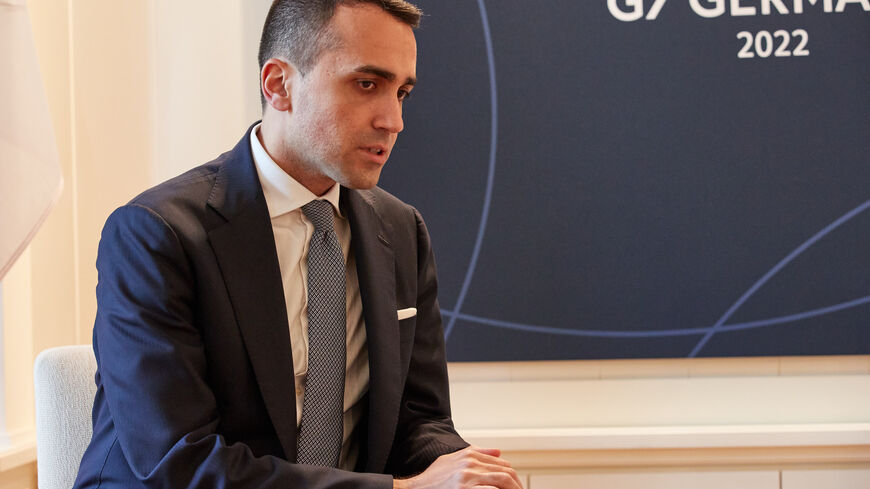PARIS – The Council of the European Union appointed former Italian Foreign Minister Luigi Di Maio as its special representative (EUSR) for the Gulf region Monday. The new position was created in late 2022 to further a strategic partnership between the EU and Gulf countries.
Discussions on Di Maio's nomination began last November. His candidacy for this new post was sponsored by Italian Prime Minister Mario Draghi, under whom Di Maio served as foreign minister.
The nomination process (from November 2022 until May 2023) was apparently prolonged due to objections by several Italian politicians and other politicians in France.
Early rise in anti-establishment movement
Di Maio, 36 years old, entered politics in 2013 as representative of the anti-establishment Five Star Movement (M5S), becoming the youngest politician in Italy to be elected deputy house speaker at age of 26. In 2017, he was nominated head of his party. Under his leadership, the M5S reached 32% of parliamentary seats. Over the years, he has served as minister of economic development and as minister of labor and social policies. In 2021, he was nominated foreign minister, a position he held until 2022, when Giorgia Meloni came into power.
Under Draghi’s government, Di Maio underwent a dramatic political transformation, distancing himself from his own party’s Eurosceptic policies. In June 2022, he provoked a split within the F5M, quitting it to create a new political formation called "Together for the Future," supporting Draghi’s government.
Di Maio's nomination as envoy provoked quite a few objections across Europe.
Meloni’s ruling party (Brothers of Italy) did not support his candidacy proposed by Draghi, who is considered an especially influential personality in Brussels. Incumbent Italian Foreign Minister Antonio Tajani said Di Maio had not been nominated for the post by the current government.
Friction with UAE
Other European politicians have been blaming Di Maio for friction between Italy, the United Arab Emirates and Saudi Arabia in 2021 when he served as foreign minister. On the backdrop of the Yemen war and following calls by the European Parliament, Italy halted the sale of aircraft bombs and missiles to the Emirates and Saudi Arabia. Announcing the ban, Di Maio said the measure reflected Italy’s “unbreakable commitment” to human rights. Five months later, retaliating against the ban, the Emirates ordered Italy to evacuate its forces from the Al Minhad airbase in Dubai. Italy had been using the base as a departure point for missions in Afghanistan and the Horn of Africa. Opponents of Di Maio accused him of failing to communicate with Emirati and Saudi leaders before imposing the ban and causing a diplomatic crisis.
Di Maio has also been blamed for provoking a crisis with France in 2019, when he met with Yellow Vest activists demonstrating against the government of President Emmanuel Macron. Paris recalled its ambassador to Rome for consultations in protest.
The crisis with the Emirates has since subsided, especially following Meloni's visit to Abu Dhabi on March 4. Over the years, Italy has become a major arms supplier to Saudi Arabia. Leaving the ban crisis behind them, economic and security cooperation between the two countries have since resumed and even increased in the past few months. Di Maio visited Riyadh in June 2022 for the 12th Italian-Saudi Joint Commission and the Investment Forum.
The new role of EU envoy to the Gulf reflects Brussels’ commitment to further engagement with the region, especially since the Russian invasion of Ukraine and the ensuing outbreak of the global energy crisis. A statement issued by the EU commission on Di Maio's nomination read, "The EUSR will seek the best ways to contribute to the stability and security of the region by engaging and supporting dialogue and long-term regional solutions with individual Gulf partners and relevant regional organizations."







